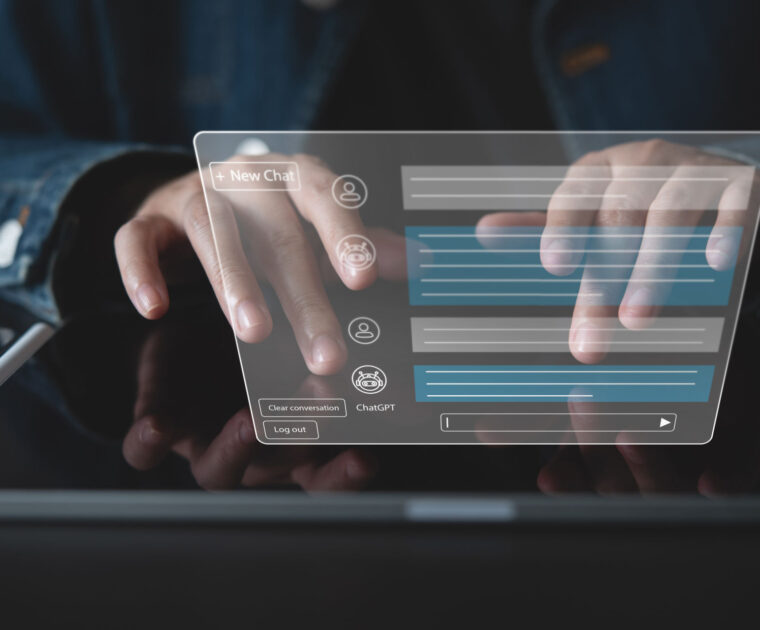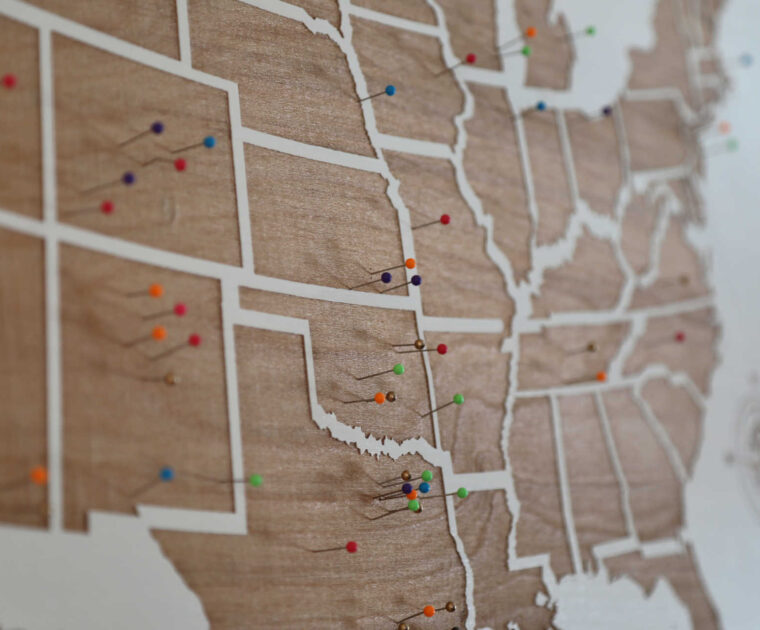For more than fifty years, the United States legal framework has offered foreign litigants an effective tool to gather American-style evidence (what we call discovery in the United States) in support of foreign proceedings. Briefly, United States law, through 28 U.S.C. § 1782 (“section 1782”)1 allows foreign litigants to collect evidence from third parties located in the United States for use in a foreign legal proceeding. To illustrate:
A sues B in Mexico alleging that B sold products to C, in violation of a non-compete clause in a distribution contract. Section 1782 allows A to initiate a legal proceeding in the United States against C to collect evidence to be used in the legal proceeding in Mexico between A and B.
For many years, this tool was rarely used, but recently, thanks to globalization and the rise of international arbitration, the use of section 1782 has increased considerably—although not enough, considering its strategic value. The question at hand is whether section 1782 can be used in the private commercial arbitration arena. The United States Courts of Appeals are divided on the matter, so the success of a foreign litigant in this type of procedure will depend on the place in which it is initiated.
Legal Framework Under 28 U.S.C. §1782
Section 1782 states that “the district court of the district in which a person resides or is present may order that person to testify, testify, or produce documents or other things for use in a proceeding before a foreign or international court.” .” 28 U.S.C. §1782(a); In re Chevron Corp., No. 10-MI-0076, 2010 WL 8767265, at *2 (N.D. Ga. Mar. 2, 2010); In re Roz Trading Ltd., 469 F. Supp. 2d 1221, 1222 (N.D. Ga. 2006). Additionally, it establishes that the testimony or statement, or document to be offered will be promulgated in accordance with the Federal Rules of Civil Procedure. Id. The policy behind section 1782 presupposes that, generally, courts should provide some form of assistance to parties requesting discovery or collection of evidence. In re Sergeeva, No. 113CV03437SCJRGV, 2013 WL 12169388, at *11 (N.D. Ga. Nov. 22, 2013), aff’d Sergeeva v. Tripleton Int’l Ltd., 834 F.3d 1194 (11th Cir. 2016).
The Supreme Court of Justice has reduced the text of section 1782 to the following four requirements: (1) the application must be made… by an interested party; (2) the application must request the promulgation of evidence, whether testimonial, documentary or otherwise; (3) the evidence must be for use in a proceeding before a foreign or international court; and (4) the person from whom the evidence is requested must reside or be present in the district of the court deciding the case. See Intel Corp. v. Advanced Micro Devices, Inc., 542 U.S. 241, 246-47 (2004). If these four requirements are established, the courts proceed to consider other discretionary factors to decide whether or not to grant the application requesting the collection of evidence.
28 U.S.C. § 1782 and International Arbitration
For the purposes of international arbitration, it is relevant to analyze the requirement of section 1782, which requires that “evidence must be requested to be used in a proceeding before a foreign or international court,” since the courts in the United States are divided regarding a private international arbitral tribunal qualifies as a foreign or international court under section 1782. In re EWE Gasspeicher GmbH, No. CV 19-MC-109-RGA, 2020 WL 1272612, at *2, n. 2 (D. Del. Mar. 17, 2020) (listing cases from both sides).
In the late 1990s, the Courts of Appeals for the Second and Fifth Circuits2 decided that private commercial arbitrations held outside the United States did not qualify as “foreign or international courts” for purposes of section 1782. Nat’ l Broad. Co., Inc. v. Bear Stearns & Co., Inc., 165 F.3d 184, 188, 190–91 (2d Cir. 1999); Republic of Kazakhstan v. Biedermann Int’l, 168 F.3d 880, 883 (5th Cir. 1999). In reaching this conclusion, these courts reasoned that the preparatory work for section 1782 demonstrated that the purpose of the United States Congress in promulgating this law was that it only apply to government arbitration tribunals, conventional courts, and other state adjudication bodies. They also reasoned that allowing this type of discovery or collection of evidence would undermine the principles of efficiency and economic effectiveness of international arbitration.3 By virtue of these decisions, most district courts rejected the use of section 1782 for private commercial arbitrations, but did allow its use for investment arbitrations, as they considered investment arbitrations based on bilateral investment treaties to be “governmental arbitral tribunals” for the purposes of section 1782.
Twenty years later in September 2019, the Court of Appeals for the Sixth Circuit,4 contrary to previous opinions, granted a request under section 1782 in support of a private commercial arbitration proceeding. Abdul Latif Jameel Transp. Co. Ltd. v. FedEx Corp., 939 F.3d 710 (6th Cir. 2019). Applying the textual definition of the word “tribunal” and its use in the legal lexicon, the court concluded that both American lawyers and judges understand that the word “tribunal” also extends to arbitral tribunals that preside over private commercial arbitrations. The court also concluded that the use of section 1782 need not impede the efficiency of arbitration since courts have broad discretion to focus or restrict this process as necessary.
The Court of Appeals for the Fourth Circuit5 recently joined the Sixth Circuit in ruling that a private commercial arbitration proceeding is a foreign or international proceeding for purposes of section 1782. Servotronics, Inc. v. Boeing Co., 954 F.3d 209 (4th Cir. 2020). The Court reasoned that the main objective of section 1782 is to facilitate cooperation with foreign countries by offering assistance through the American federal courts and noted that, although the law initially contemplated limiting its application to judicial processes, the final version of the law used a broad and inclusive language that extends to arbitral tribunals.
This divergence of opinion regarding the application of section 1782 in the field of private commercial arbitrations leaves a legal vacuum for foreign litigants that will probably be resolved by the Supreme Court of Justice in the Servotronics case. However, the Court of Appeals for the Ninth Circuit6 will have the opportunity to issue its own opinion on the matter in the coming months, since in February of this year a federal court in California deviated from the line followed by other federal courts in that State and granted a request for collection of evidence pursuant to section 1782, for use in a private commercial arbitration. HRC-Hainan Holding Co., LLC v. Yihan Hu, No. 19-MC-80277-TSH, 2020 WL 906719, at *1 (N.D. Cal. Feb. 25, 2020).
Practical Considerations
Section 1782 is and will continue to be an important tool for foreign litigants to exert pressure on their counterparts through the collection of evidence on third parties. Its application is undisputed in the field of foreign litigation and international investment arbitration. And, pending a decision by the Supreme Court of Justice, it may also be used in the field of private international arbitration in some jurisdictions in the United States.
Therefore, it is important to know which jurisdictions allow the use of section 1782 in the context of private commercial arbitrations. For example, among the courts that allow its use for private arbitrations are the federal courts of Georgia, Florida, California, Rhode Island, Maryland, Michigan, Ohio, and New Jersey.
Additionally, it should be noted that requests for collection of evidence under section 1782 can be made ex parte. Since the evidence-gathering process under section 1782 is governed by the federal rules of civil procedure, courts can issue a subpoena ordering the production of evidence without prior notice to the party required to produce the evidence. In re Clerici, 481 F.3d 1324 (11th Cir. 2007). The party required to produce the evidence, however, may request the annulment of said subpoena. John Deere Ltd. v. Sperry Corp., 754 F.2d 132, 133 (3d Cir. 1985).
Finally, it is worth noting that section 1782 allows the foreign litigant to enter into an evidence-gathering process that may be much broader than what it would have in a foreign legal proceeding, which may be decisive in the success of the foreign proceeding. . The clearest example can be found in the famous case of In re Chevron Corp., 749 F. Supp. 2d 141 (S.D.N.Y.). There, in the context of an investment arbitration between Chevron and the Republic of Ecuador, Chevron initiated a proceeding under section 1782 in New York to obtain evidence from a film production company that had produced a documentary on the facts of the case. The New York Court granted the request, and Chevron obtained evidence showing that the expert used by the Ecuadorian courts in previous litigation against Chevron had been improperly influenced by the Republic of Ecuador. This evidence—which could not have been obtained in the arbitration process—turned out to be decisive in the investment arbitration, in which the arbitral tribunal determined that the ruling issued by an Ecuadorian Court ordering Chevron to pay 9.5 billion dollars had been obtained fraudulently.
We will continue to monitor the decisions of the Courts of Appeals interpreting section 1782 and we will continue to report on any developments.
______________________________
1 28.U.S.C. § 1782 is the number of the law that provides for the evidence collection procedure. Its name comes from the fact that the law is established in section 1782 of Title 28 of the United States Code.
2 The Court of Appeals for the Second Circuit is the federal court of second instance that presides over appeals from decisions issued by the federal courts of Connecticut, New York, and Vermont. The Court of Appeals for the Fifth Circuit is the federal court of second instance that presides over appeals of decisions issued by the federal courts of Louisiana, Mississippi and Texas.
3 On July 8, 2020, the Court of Appeals for the Second Circuit reaffirmed its position and concluded that section 1782 has no application in the field of private international arbitration. In Re Guo, 965 F.3d 96 (2d Cir. 2020).
4 The Court of Appeals for the Sixth Circuit is the federal court of second instance that presides over appeals from decisions issued by the federal courts of Kentucky, Michigan, Ohio, and Tennessee.
5 The Court of Appeals for the Fourth Circuit is the federal court of second instance that presides over appeals from decisions issued by the federal courts of Maryland, North Carolina, South Carolina, Virginia, and West Virginia.
6 The Court of Appeals for the Ninth Circuit is the federal court of second instance that presides over appeals from decisions issued by the federal courts of Alaska, Arizona, California, Hawaii, Idaho, Montana, Nevada, Oregon, and Washington.




